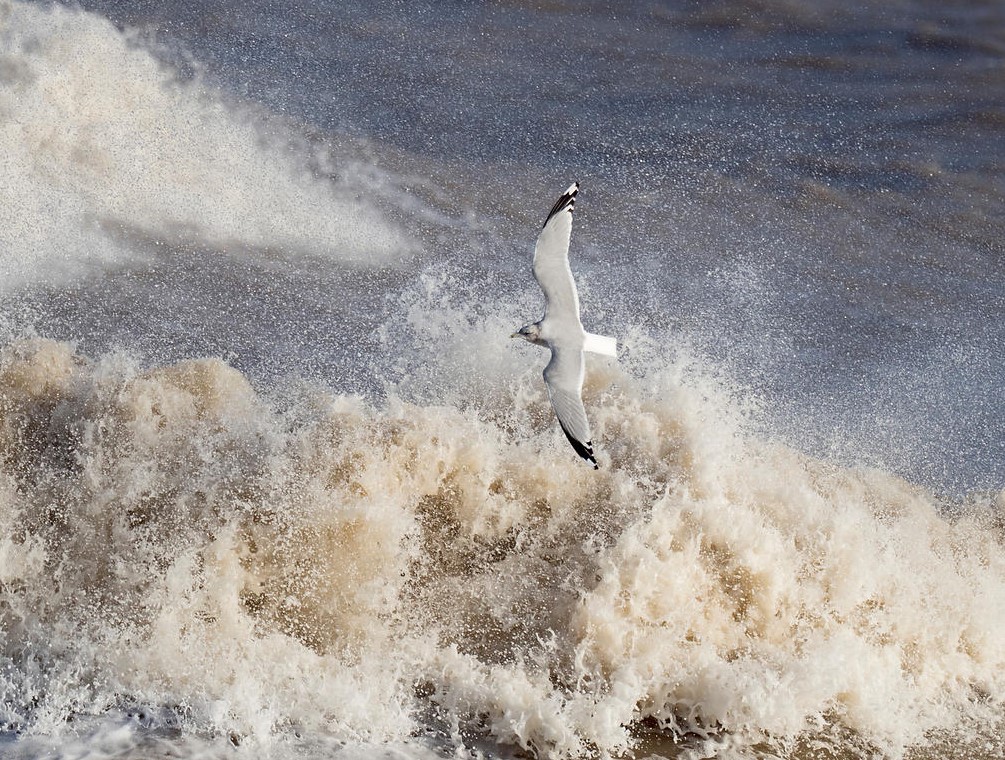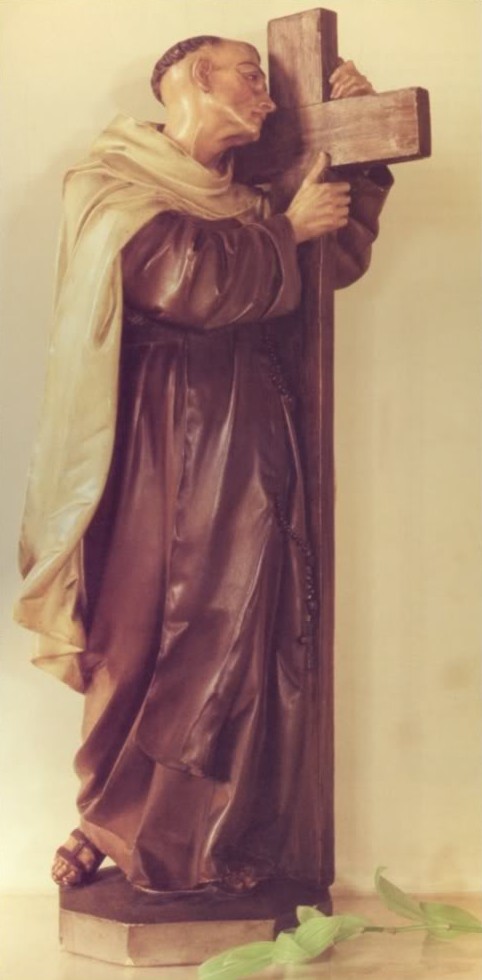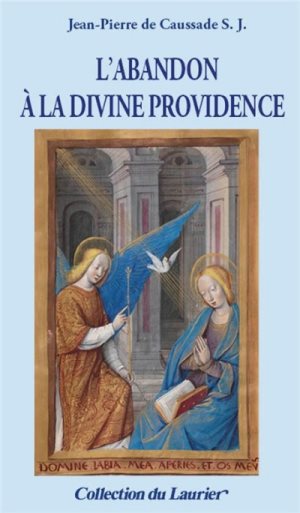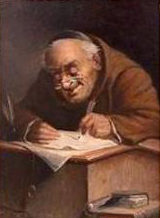During Christmas Vigil Mass, a young girl, granddaughter to the organist, played the lead on a rendition of Silent Night during communion. Her innocence and youth shined through the moment, bringing a sincere depth to the Christmas celebration. Moments in life can be revealing to the greater truth of a Savior being born; God descending into the sharing of our burdens. In times of strife and difficulties, a baby brings eternal hope to the world.
Monthly Archives: December 2020

The Three Ways: Purification, Illumination, and Union
The purification of the soul is the first step in the long road to the rewards of ecstasy. At first, the obstacles that prevent the attainment of perfection are the sinful occupations of the mind and the lingering enjoyment of human relations, emotional attachment, and minor pleasures and comforts. The necessary beginning must then be a constant self-denial and deprivation of all possible material pleasure: a life of alert asceticism. This is the stage of purification, in a sense a preliminary state, but also a road to be traversed constantly and consistently both before and after the attainment of perfection. In perfection there would be no more need of striving, but perfection is momentary, and attachment to the delights of a special kind of thought or knowledge can become imperfection. Since every possible thought is merely an approximation to the divine, there is no way but the pursuit of a complete void, in which the soul must know nothing and be nothing. In the last stage of perfection, the soul must be free from everything no matter how spiritual it may seem, since everything because it exists is a creature and not the creator.
This first Way of Purification, the Purgative Way, leads to peace, in the same way as the second, the Illuminative Way, leads to truth, and the third, the Unitive Way, leads to love. If these metaphors clearly referred to three successive stages, it would be easy to explain and understand the process of mystical inquiry. But, from the very beginning, even in the first way of purification that seems clearly preliminary, the process is a continuum in which the truth of contemplation as well as the delight of union are prefigured in the joy of darkness, and, at the same time, the ultimate union requires the constant watchfulness of purification. The three ways overlap and “the exercises prescribed are needed simultaneously at every stage of the spiritual life. The first is concerned with the expulsion of sin, the second with the imitation of Christ, and the third with the ‘reception of the Bridegroom.’ In the first two the soul is predominantly active, in the third predominantly passive, and…in the last, meditation scarcely exists, having become unnecessary.
‘San Juan de la Cruz’ by Brazilian Philosophy professor, naturalized United States citizen, Bernard Gicovate

Soaring above
So come! Never mind weariness, illness, lack of feeling, irritability, exhaustion, the snares of the devil and of men, will all that they create of distrust, jealousy, prejudice and evil imaginings. Let us soar like an eagle above these clouds, with our eyes fixed on the sun and its rays, which are our duties. We cannot help being aware of all these evils, of course, and we cannot be indifferent to them, but let us never forget that ours is not a life governed by our feelings. We must live in those upper reaches of the spiritual life where God and his will are active in a process which is eternal and unchanging. There, he who is uncreated, immeasurable and cannot be described by human words, will keep us far removed from all the shadows and turmoil of the world. We shall feel through our senses countless disturbances, it is true, but they will all disappear like the clouds in a windswept sky. –‘Abandonment to Divine Providence’ Father Jean-Pierre de Caussade


The last days of a saint
Last Illness and Death
John of the Cross had been deprived of all power and office. His cell was bare, and no entertainment, comfort, or consolation was at hand. He was again a humble friar–as humble and as poor as when he had started on the road to perfection in the hut at Duruelo. The only difference now was that he knew he did not have much time left. Although he had written from La Penuela that his sickness was trivial and that he would recover in a short time, he must have known that his strength had been sapped. Even the unfriendly Prior noticed that something was seriously wrong and had a doctor called.
When Antonio de Villarreal, a physician in town, arrived the next morning, the five sores in John’s foot had burst. Pus and blood were oozing. The doctor saw the need to open the ulcers and drain them. Without anesthetic, he proceeded to cut a deep incision, reaching the bone. The operation gave some relief but John of the Cross had to lie in bed. In the following days, he lay alone. The Prior visited him only to upbraid him and accuse him of a hundred imaginary crimes and imperfections. He ordered the brothers not to go near him. When charitable ladies in town offered their services to wash the sick man’s linen and change the dressing of his wounds, the Prior refused his permission. He did not allow the townspeople to provide food for Saint John’s sustenance.
The Prior of La Penuela and many of the friars were grieved when they learned of the cruel treatment John was subjected to. They found ways to inform the Provincial, who was the very old and venerable Friar Antonio de Jesus, John’s former prior in Duruelo. Antonio hastened to visit his old friend. When he saw the truth of the report, he censured the Prior of Ubeda and ordered some comfort of music and nourishment for John of the Cross. During the few days of his stay at Ubeda, Friar Antonio tried to cheer John, whom he visited often. After he left, since his example and his admonitions had succeeded in convincing the community that John deserved sympathy and love, the friars tried to console and help him, and even the Prior relented in his treatment of the dying friar.
It was, alas, too late. John himself begged that no music be played: he did not want to be distracted from the pain he thought was given to him for purification. As he lay in bed, his body began to be covered with sores. First, two large ulcers were found on his back and were opened. Then a large sore developed between his shoulder blades. More sores covered his body, and the inflammation in his leg grew worse in spite of surgery.
In the first days of December, the physician made it clear to John that he could not hope to recover. He had only days to live. The last test was at hand. The remaining days he spent reading or listening to passages of religious books read to him. Occasionally, he would listen to music or to the recitation of his own verses that promised the return of rapture he had known in moments off meditation and fervor. He continued to reflect on the futility of all things human and to long for the bliss he had named in enigmatic words during the suffering in his cell.
He knew now he would soon be delivered from the last imprisonment. On the night of the 14th of December of 1591, after having prepared his soul through confession and communion, consoled with sweet conversation from the young priests who had come to his side, his time in the world was completed. Everybody was shaken, while John of the Cross was serene and happy. The distant murmur of matins could be heard when John ceased his exhortations for the last time. Those who had heard him knew he had just paused in his work. The words he had repeated so often were now to be repeated without the changes of his inflexion and reworking; they belonged to the world now. The thoughts and the rhythms he had left in manuscripts were copied by disciples who remembered him in the convents at Beas or Granada. His example lived on in the memory of those who had loved him. Many years later their manuscripts were to be printed, and the words he had uttered were to become all that was left of him.
John of the Cross had lived less than fifty years. Of the external experiences of success and power he had known little or nothing. Of poverty and suffering he had known as much as man can know. From childhood to adolescence, from youth to manhood and maturity, he had been schooled in pain and renunciation. He had had as many opportunities as any man in his time and place to grab security or worldly gain, but had spurned every chance. He had instead been steadfast and loyal to his one ambition: to learn and to understand. He had been ill since adolescence and had suffered from unexplained fevers and excruciating pains. But his will had conquered pain and disease, poverty and calumny, temptation and power. What was left of him was only the light of a thought so clear that generation after generation would return to it again and again.
San Juan De La Cruz biography and commentary by Bernard Gicovate

St John of the Cross Adoring

Divine Relationship
Hark! my lover–here he comes
springing across the mountains,
leaping across the hills.
My lover is like a gazelle
or a young stag.
Here he stands behind our wall,
gazing through the windows,
peering through the lattices.
My lover speaks; he says to me,
“Arise, my beloved, my dove, my beautiful one,
and come!
“For see, the winter is past,
the rains are over and gone.
The flowers appear on the earth,
the time of pruning the vines has come,
and the song of the dove is heard in our land.
The fig tree puts forth its figs,
and the vines, in bloom, give forth fragrance.
Arise, my beloved, my beautiful one,
and come!
“O my dove in the clefts of the rock,
in the secret recesses of the cliff,
Let me see you,
let me hear your voice,
For your voice is sweet,
and you are lovely.”
Song of Songs

Self-propulsion a mistake
God imparts to the soul in the state of abandonment by means which seem more likely to
destroy it.
There is a time when God would be the life of the soul, and Himself accomplish its perfection in secret and unknown ways. Then all its own ideas, lights, industries, examinations, and reasonings become sources of illusion. After many experiences of the sad consequences of self-guidance, the soul recognizing its uselessness, and finding that God has hidden and confused all the issues, is forced to fly to Him to find life. Then, convinced of its nothingness and of the harmfulness of all that it derives from itself, it abandons itself to God to gain all from Him. It is then that God becomes the source of its life, not by means of ideas, lights, or reflections, for all this is no longer anything to it but a source of illusion; but in reality, and by His grace, which is hidden under the strangest appearances.
–‘Abandonment to Divine Providence’ by Father Jean-Paul de Caussade, 18th century French Jesuit, spiritual director to the nuns of the Order of the Visitation of the Holy Mother (Ordo Visitationis Beatissimae Mariae Virginis).


Detachment usurping pride
If books, the example of the saints, and spiritual conversations deprive the soul of peace; if they fill the mind without satisfying it; it is a sign that one has strayed from the path of pure abandonment to the divine action, and that one is only seeking to please oneself. To be employed in this way is to prevent God from finding an entrance. All this must be got rid of because of being an obstacle to grace. But if the divine will ordains the use of these things the soul may receive them like the rest—that is to say—as the means ordained by God which it accepts simply to use, and leaves afterwards when their moment has passed for the duties of the moment that follows. –‘Abandonment to Divine Providence’ by Jean-Pierre de Caussade



Recent Comments